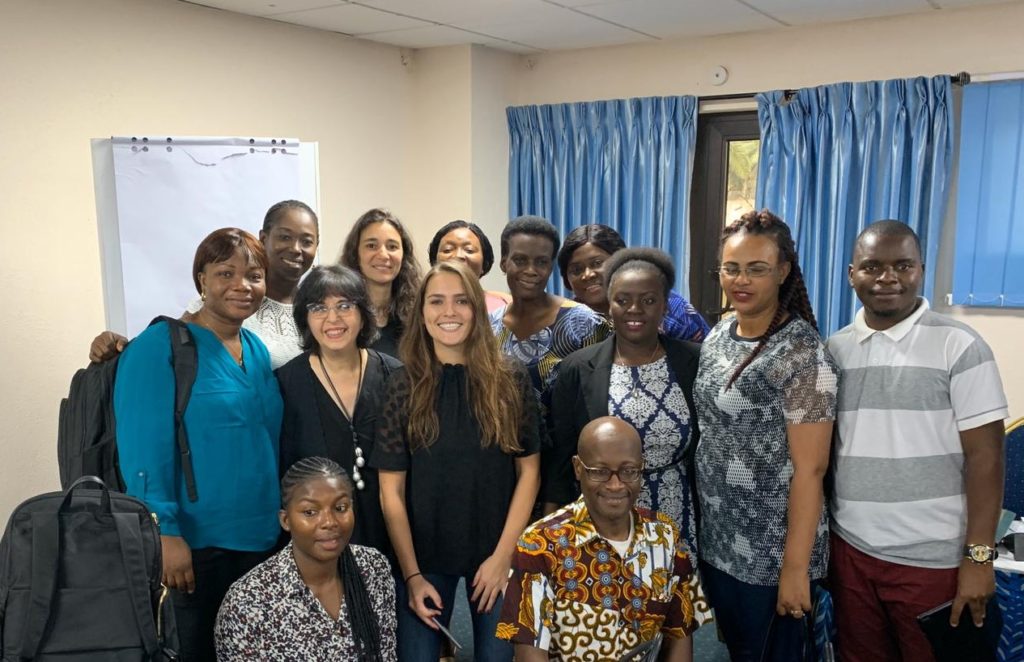Through anecdotes, rapid assessments, and other limited data sources, it has become evident to international organizations and development partners that the COVID-19 crisis has increased women’s vulnerabilities and widened existing inequalities.
Yet it’s difficult to understand and address the unique nature of these inequalities because large gaps in gender data remain — a signal that timely and quality gender data production and use is needed.
Africa’s National Statistics Offices (NSOs), the official producers of statistics, have not been spared from the effects of the pandemic — making it even more challenging to answer demands for more and better sex-disaggregated data.

To support Africa’s NSOs in 15 countries, the United Nations Economic Commission for Africa (ECA) has been working closely with Data2X and Open Data Watch over the last year and a half to launch the Africa Gender Data Network (AGDN). The main goal of the Network is to: 1) raise the standard of gender data production to better link with the demand for that data; 2) improve the effectiveness of communication of and about gender data and; 3) encourage gender data use across participating countries.
To better understand the impact of the pandemic on the statistical activities of AGDN countries, ECA conducted a short survey followed by interviews in late 2020. Overall, the survey found that all 15 countries and their statistical operations have been affected by the pandemic — whether moderately or severely.
The survey also found that the demand for real-time gender data for decision making has increased, with requests to incorporate a gender perspective in understanding the socio-economic impacts of COVID-19, in addition to requests for data on specific issues like gender-based violence, teenage pregnancy, female genital mutilation, and time use statistics during the pandemic.
While increased demand for timely gender data is a positive development, funding for NSOs to respond to such demands has decreased as funds are channeled to COVID-19-related preventive measures and the health needs of staff.
As a result, NSOs need to innovate and adapt quickly to the situation by improving data production and expanding the use and dissemination of data that already exists. Yet as new challenges have arisen and old challenges have intensified; the survey found that timely and quality field data collection and access to gender-related administrative records have been difficult, and the lack of coordination among government institutions continues to be a major barrier to progress. In addition, more than half of the members also mentioned roadblocks to using new, innovative data collection to produce and disseminate gender data.
Overall, most countries said that they need additional external support to face the challenges posed by the pandemic. Among the technical support needed: capacity building on gender issues at the country level, gender data analysis, and communication, focus on gender-specific surveys such as Violence Against Women surveys, as well as phone and web surveys to collect gender data.
The survey results have confirmed what has long been known: more gender data is needed and more long-term foundational investment in gender data is required to ensure that in time of crisis we have the data to build gender-responsive recovery. The pandemic has made this foundational investment harder to ignore.
One silver lining that has emerged from the challenges of this year is that countries are learning from one other, exchanging knowledge and good practices, and exploring new methods for producing and using data.
For example, the Ghana Statistical Service, with support from the Deutsche Gesellschaft für Internationale Zusammenarbeit (GIZ), is conducting a pilot survey on gender-based violence using the citizen-generated data approach, involving many actors across the statistical system (70+ individuals) in the design and selection process of the application. This is a new way of collecting data for NSOs and serves as a good example that other countries can learn from.
The Network is a young initiative that has already proven useful for its members by giving them credibility and confidence to raise awareness about the production and use of gender data within their organization and their country governments, as well as at regional and international levels. It has initiated valuable conversations and knowledge-sharing between countries, helping to build a strong sense of community among members who value it as a source to turn to when in need.
The Network will need to maintain this support to members in the post-COVID-19 context by continuing to connect them with the wider gender data community through online events and webinars, foster regular communication to ensure their needs are addressed by enabling capacity building, strengthening gender data expertise, and facilitating cross country learning, and identify opportunities for short-and long-term responses to existing challenges that have been amplified by the pandemic.
